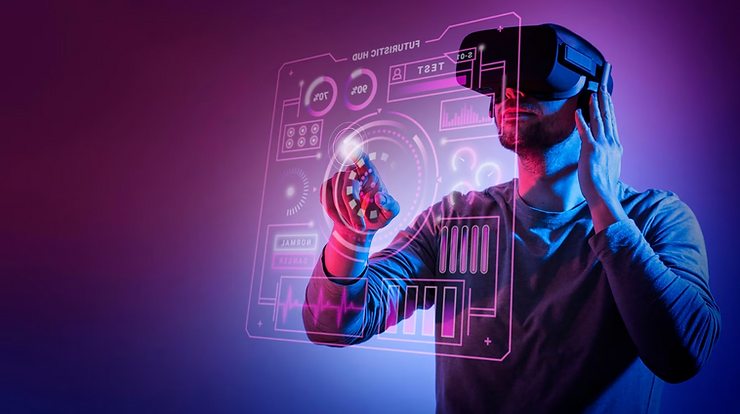Embracing new technology is essential for companies to stay competitive and thrive in today’s rapidly changing business landscape. Artificial Intelligence (AI) is one such emerging technology which has been rapidly transforming various industries, creating new opportunities for businesses to streamline processes, improve decision-making, and enhance customer experiences.
The latest entrant which has garnered enormous attention is ChatGPT, the new AI chatbot from OpenAI. As its acronym indicates, Generative Pre-training Transformer, Chat GPT is a generative language model based on the ‘transformer’ architecture. These models are capable of processing large amounts of text and learning to perform natural language processing tasks very effectively.

Let’s explore the influence of AI a on different industries.
Healthcare Industry
AI have been extensively used in the healthcare industry to improve patient care and reduce costs. For example, AI-powered chatbots provide real-time assistance to patients, helping them understand their symptoms, schedule appointments, and receive medical advice. In addition, AI can analyse medical data to identify potential health risks, develop personalised treatment plans, and predict future medical needs.
Banking and Finance
The banking and finance industry has also been utilizing AI to streamline operations and improve customer experiences. AI-powered chatbots and virtual assistants can assist customers in making financial transactions, answering queries and providing personalised financial advice. AI algorithms can also be used to analyse financial data and identify patterns to make better investment decisions.
Retail Industry
The retail industry has been using AI to enhance the shopping experience for customers. AI algorithms analyse customer data to provide personalised product recommendations, offer real-time discounts, and even predict what customers may buy in the future. Other than this, Chatbots can also be used to provide customer support and answer product-related questions.
Manufacturing Industry
In the manufacturing industry, AI is being used to improve product quality and streamline production processes. AI-powered robots are to perform repetitive tasks, subsequently reducing labor costs and improving efficiency. AI algorithms can also be used to reduce downtime and costs by identifying potential issues in production processes and predicting maintenance needs.
Education Industry
AI has the potential to transform the education industry by providing personalized learning experiences and improving student outcomes. AI algorithms can analyze student data and provide recommendations for educational materials, activities, and assessments. Chatbots can also be used to provide instant feedback to students, answer their questions, and offer additional resources to support learning.
AI has the potential to revolutionise industries by providing avenues for unconventional problem solving. Due to its rich potential, much of it is unexplored, therein opening scope for research and experimentations in the supply chain across a range of industries. This potential also comes with an additional responsibility. It is essential to ensure that these technologies are developed and used responsibly to avoid unintended consequences. It therefore becomes vital to balance the excitement of its possibilities with ethical principles to ensure its right usage and ultimately shape the future of different industries.
